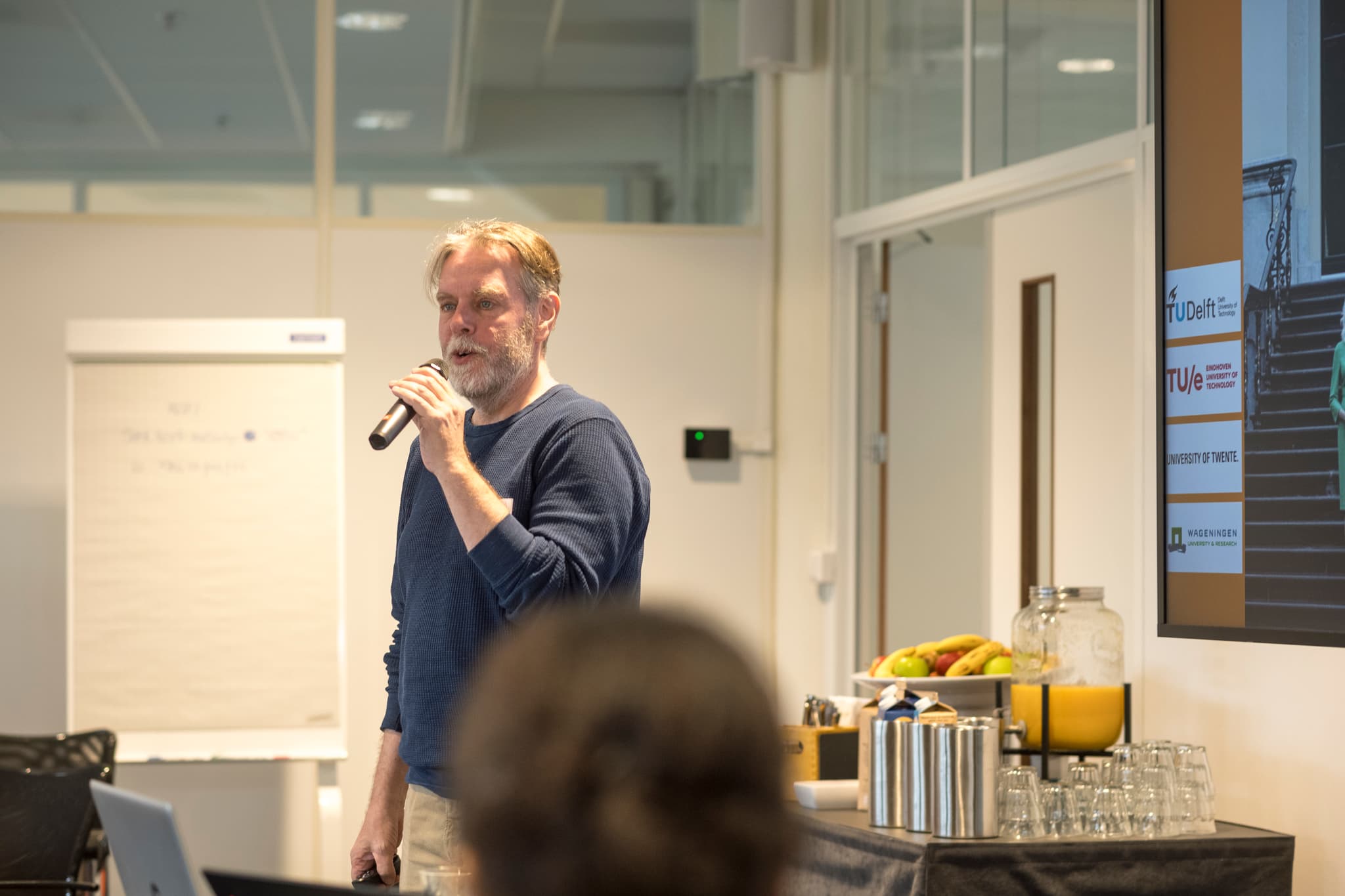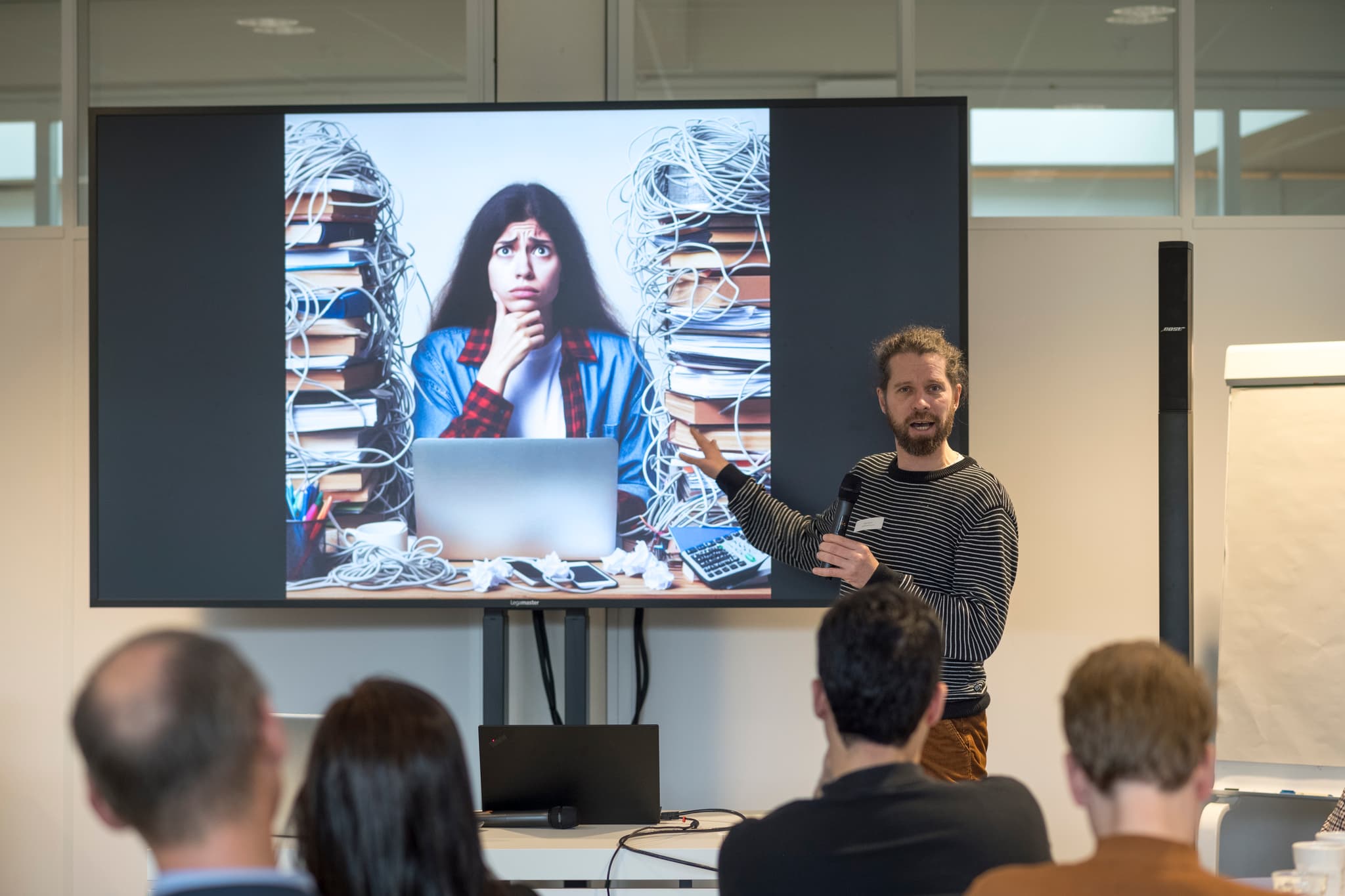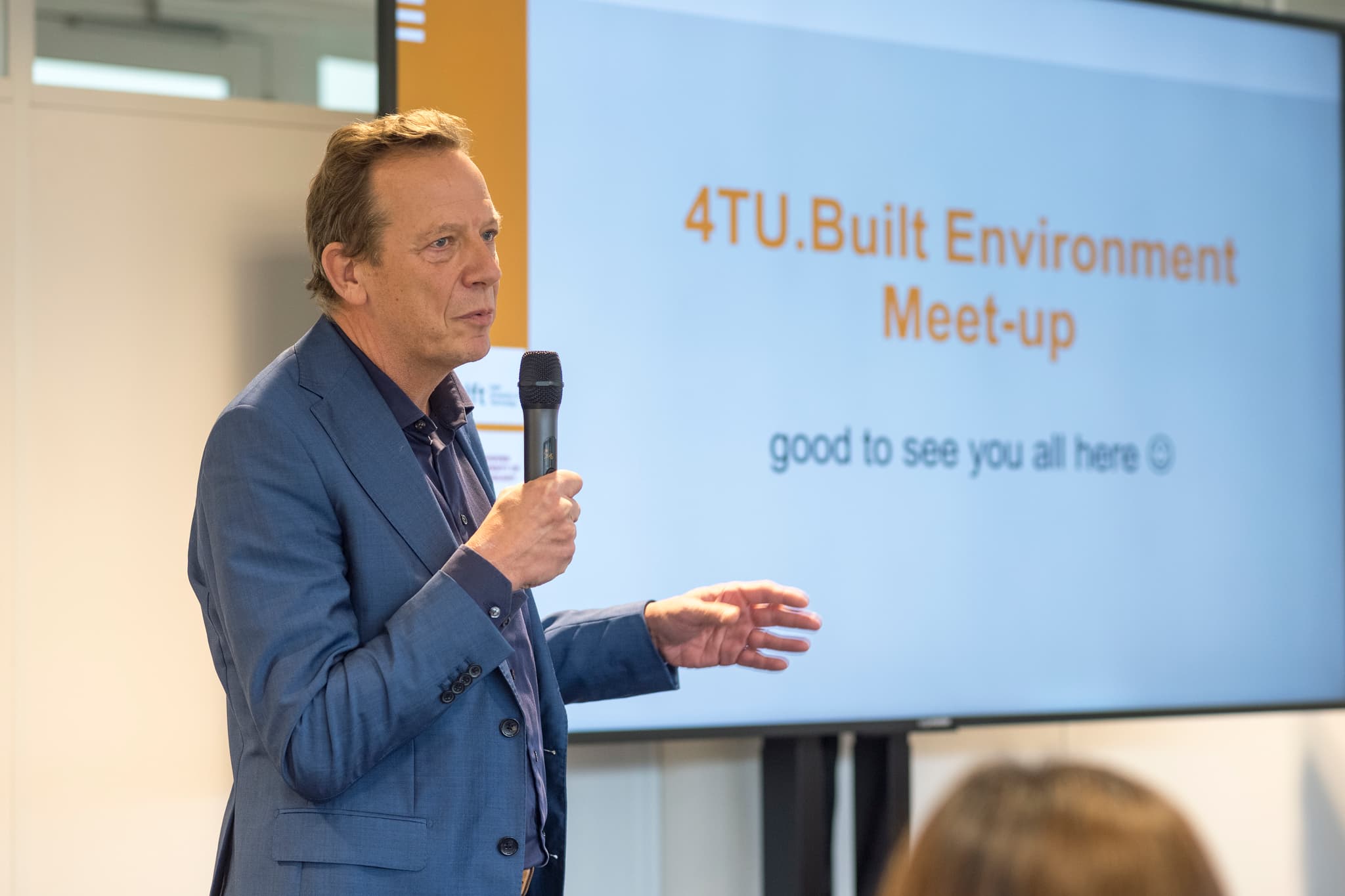Universities open doors to new forms of teaching, research and collaboration
Climate change, pressure on the healthcare system, and tight labor markets. Society faces major challenges. Universities need to think about their changing position.
Published on January 17, 2025

As Head of Partnerships, Linda liaises with new partners. She coordinates all ongoing collaborations and connects our journalistic editorial and commercial articles. She is not only the connector behind our articles, but also all of our events.
“Our situation is turbulent. The new government is more skeptical about science and plans to cut part of our budget. Yet, universities actually make an essential contribution to finding solutions to current social problems,” says Frank van der Hoeven, scientific director of 4TU.Built Environment. So universities need to think about their own role in society, he argues.
Accessibility and impact on society are recurring topics. “How are we going to keep global warming below 1.5 °C? We ask such an extensive question to Ph.D. students. How are we going to lower energy bills? That's more of a question you discuss with your neighbors,” Van der Hoeven cites as an example. “As a university, we have to engage in both approaches.”
The fourth generation
But how will universities actually integrate this new mindset into their way of working? That's what it's about at the annual Meet-up of 4TU.Built Environment, last October in Utrecht. 4TU.Built Environment is the partnership of the four technical universities in the Netherlands regarding the built environment. During the gathering, they engaged in a discussion about a relevant topic: the fourth-generation university. In addition to the previous linear approach to education and research - the first generations - universities today operate in a society with major social challenges.

Frank van der Hoeven ©Geeke van Dijck Photography
“The pillar of social impact and the awareness of exponential development and breakthroughs of technology force a new position. Fourth-generation university is an option that should be considered. In it, we assume more decentralized, autonomous networks,” says Maaike Riemersma, coordinator of 4TU.Built Environment.
Open and accessible
Mixel Kiemen, a postdoc at Eindhoven Engine, gave a keynote on integrating research and education in the fourth-generation university. He emphasizes the difference between valorization in the third generation and impact in the fourth generation. “Valorization made us think from inside the university to outside (for example, by seeking cooperation with companies, ed.) With the fourth generation, we work from outside to inside. Organizations and society can knock on our door with challenges, to see how we can best help them. Of course, we see what societal problems are going on and are working on them. It's an interaction.”
In the near future, scientists will continue to examine other collaborations and stronger ties —with other organizations and between people—means for research and development within universities.
One of the new perspectives possibly impacting the built environment that he highlights is the CityDAO. This is a decentralized system in which people act completely autonomously. Kiemen: “These times call for radical system changes. Of course, we don't know the outcome of the experiments yet; the future will tell. But it is important to take steps and experiment now.”

Mixel Kiemen ©Geeke van Dijck Photography
Setting the course
4TU.Built Environment has organized its research in so-called Domain Acceleration Teams (DATs). Each team focuses on a specific theme around innovation in construction, from energy transition and circularity & sustainability to digitalization and health. During the meetup, each team had its own brainstorming session to evaluate and make new plans. This also created cross-connections between the DATs.
Involving the entire education chain
In addressing societal challenges and issues, such as the labor market shortage caused by an aging population involving the whole education system, is critical, according to 4TU.Built Environment academics. This includes education for students but also retraining and continuous learning for professionals. One of the reasons is the chronic personnel shortage in various sectors and the increasing digitalization of society. Several DATs are pleased with the way universities of applied sciences and secondary vocational education institutes (mbos) are hooking up with universities to do research together and also close the chain into implementation. In the coming period, it will be explored how to expand this cooperation further.
Important role for citizens
Bram de Vos, president of 4TU.Built Environment notes that he was educated at a third-generation university and is now working on the transition to a fourth-generation university. This not only involves the government and companies in the ecosystem but also involves citizens, for example, in health and climate adaptation and mitigation. For example, the researchers are looking for ways to create more awareness and include people in the results of their research in an understandable way. The contributions of involved citizens in the form of 'citizen science'' are also mentioned as an important pillar in the new generation university.

Bram de Vos ©Geeke van Dijck Photography
Planting new seeds
“We don't have all the answers right away, nor can we. Sessions like this are vital for taking the time to meet and exchange ideas. This is where planning starts, and seeds are planted to develop new ways of teaching and research. Gradually, team members get to work on making the plans a reality,” Riemersma said.
The transition to a fourth-generation university is in full swing, but it takes time. On the other hand, urgency is needed to bring about change. Bringing about change takes a long time within an institution like the university. It is important to take that into account as well. Kiemen: “It's ultimately about balance.”
Sponsored
This story is the result of a collaboration between 4TU.Built Environment and our editorial team. IO+ is an independent journalism platform that carefully chooses its partners and only cooperates with companies and institutions that share our mission: spreading the story of innovation. This way we can offer our readers valuable stories that are created according to journalistic guidelines.
Want to know more about how IO+ works with other companies? Click here
